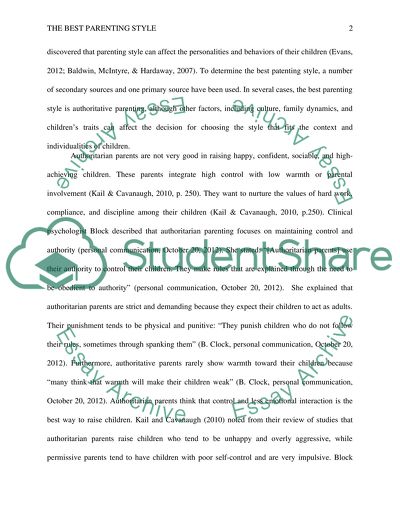Cite this document
(“The best parenting style Research Paper Example | Topics and Well Written Essays - 1750 words”, n.d.)
Retrieved from https://studentshare.org/english/1459640-the-best-parenting-style
Retrieved from https://studentshare.org/english/1459640-the-best-parenting-style
(The Best Parenting Style Research Paper Example | Topics and Well Written Essays - 1750 Words)
https://studentshare.org/english/1459640-the-best-parenting-style.
https://studentshare.org/english/1459640-the-best-parenting-style.
“The Best Parenting Style Research Paper Example | Topics and Well Written Essays - 1750 Words”, n.d. https://studentshare.org/english/1459640-the-best-parenting-style.


